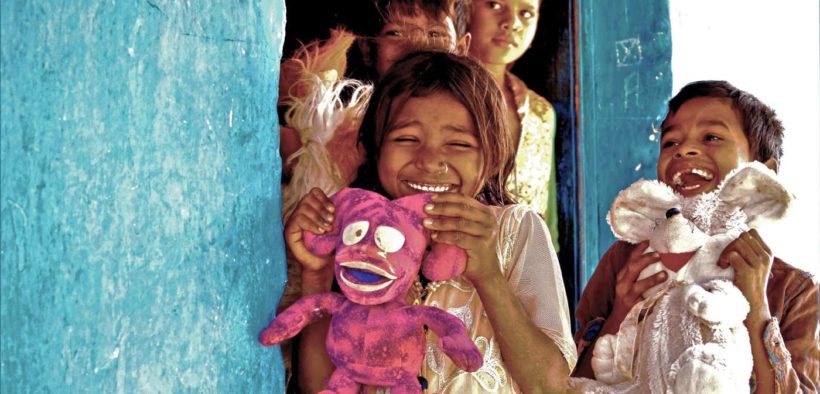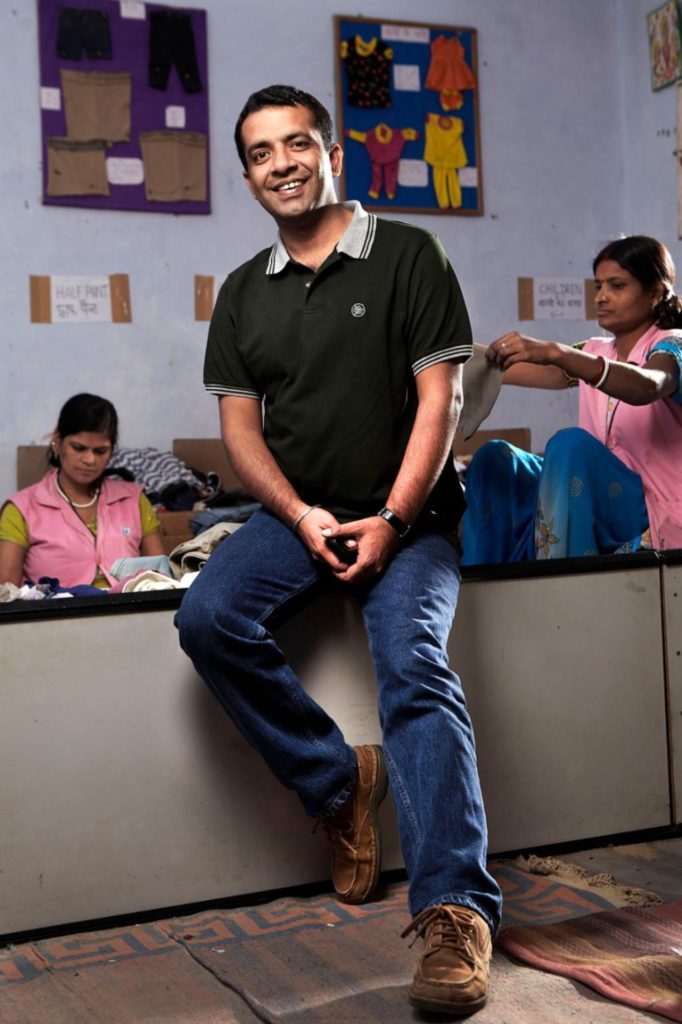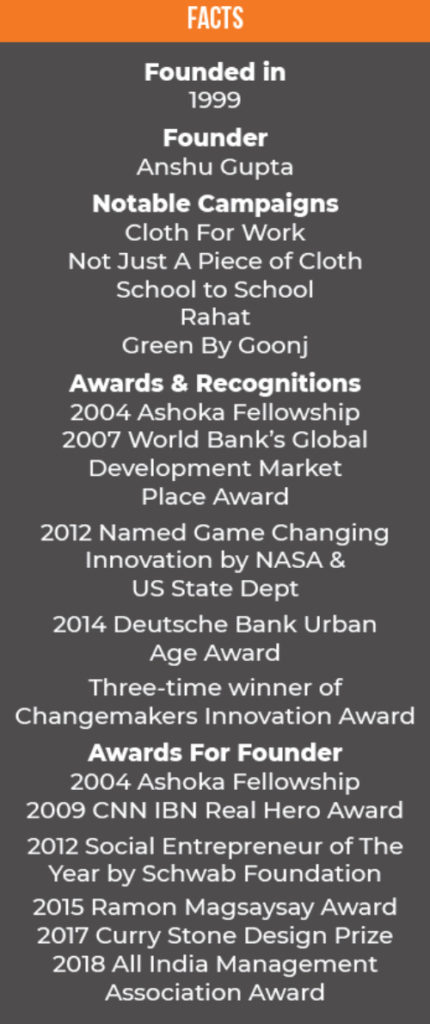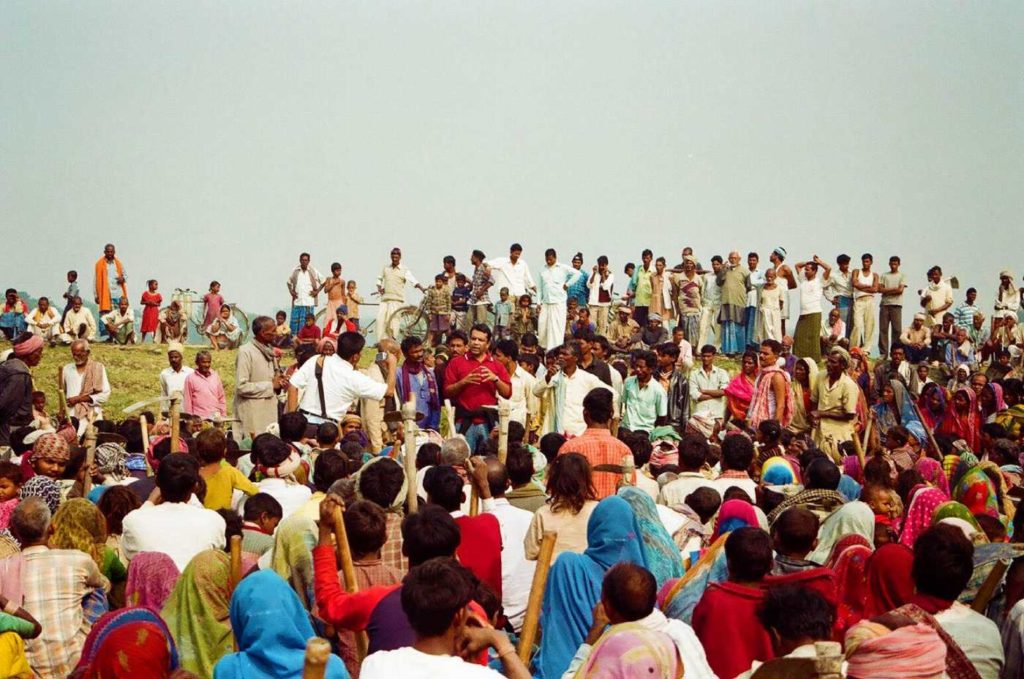It’s Not Charity

Goonj aims to empower communities by restoring the basic dignity of the poor and underprivileged
By Christina Tom Jose
When I feel cold, I hug a dead body and sleep.” These frightful words from a six-year-old, whose father earned a living by cremating corpses, served as a wake-up call for Anshu Gupta. The founder of Goonj is often called the Clothing Man of India.
Goonj was born from Gupta’s observation about the wide divide between the rural and the urban, especially in terms of prosperity and poverty. “On the one hand I noticed sky-high buildings, statues, fancy airports, while on the other side, talking to people, I saw some of the worst disasters of our times,” he explains. “Going deeper into the country I could see immense suffering, neglect and still the best of courage, and the human spirit.”
Anshu realized that in the prosperity of the cities, there was a viable economic resource: the surplus. Most city dwellers had more than they need for almost everything. Unfortunately, the surplus, which was mostly usable and in good condition, often ended up in the trash. This what led to Anshu’s idea of ‘building model for a parallel economy, which is not cash-based but trash based.’ The focus here is on the empathy and dignity of the individuals whose needs are catered for; Goonj refuses to call their work a form of charity.
“ON THE ONE HAND I NOTICED SKY-HIGH BUILDINGS, STATUES, FANCY AIRPORTS, WHILE ON THE OTHER SIDE, TALKING TO PEOPLE, I SAW SOME OF THE WORST DISASTERS OF OUR TIMES. GOING DEEPER INTO THE COUNTRY I COULD SEE IMMENSE SUFFERING, NEGLECT AND STILL THE BEST OF COURAGE, AND THE HUMAN SPIRIT.”
Anshu Gupta Founder, Goonj
The world has now woken up to the long-existing menace of unmanageable plastic waste, but there is still a relatively ignored threat looming over the horizon: the excessive use and wastage of cloth.
The production of various daily wear apparel places a toll on the environment, in terms of usage of resources, and pollution of water bodies with synthetic dyes, among others. The waste cloth, which includes both by-products of manufacturing and cloth that is no longer usable, is mostly made of synthetic fibers that do not decompose easily and end up in dumps. Ironically, this is the scenario in a world where thousands spend days together without proper clothes to wear. This gap is what Goonj hopes to bridge.

When they started off, Goonj had roughly 67 clothes to distribute, without even an office to work from. Now the organization has grown to a pan-Indian phenomenon, supplying materials in 23 Indian states through numerous offices all over the country. Since then, Goonj has participated in many initiatives, partnering with brands such as Pantaloons, Johnson’s Baby India, Whirlpool and Raymond, for the collection and distribution of clothes for the benefit of the rural poor.
Goonj was also actively involved in relief efforts for the devastating floods in Uttarakhand in 2014, and in Kerala in 2018.

Although it started off as an attempt to address the basic need for clothing, Goonj has since diversified its efforts. The School to School initiative collects basic school supplies from affluent schools in urban areas and distributes them among school-going children in rural and slum areas. This was in response to high instances of students leaving schools in poorer areas due to a lack of supplies.
Another notable initiative is Not Just a Piece of Cloth, which seeks to make open dialogue on menstrual hygiene issues possible. The campaign goals were threefold: access, awareness, and affordability.

Green by Goonj looks at using every last bit of usable material to create purses, bags, mats, and file folders. The sale of the products brings in a little money to supplement the activities of the organization.
In recognition of his efforts towards alleviating poverty and restoring the basic dignity of the poor, Anshu Gupta was awarded the prestigious Ramon Magsaysay award in 2015. What makes Goonj stand out is its strict adherence to the ideology that none of the work they do can be termed as a charity. The goal is not simply to drive poverty away but to increase the dignity of the individual and make communities self-reliant.
Also read about
A NEW LIFE, FROM THE CHRYSALIS
















